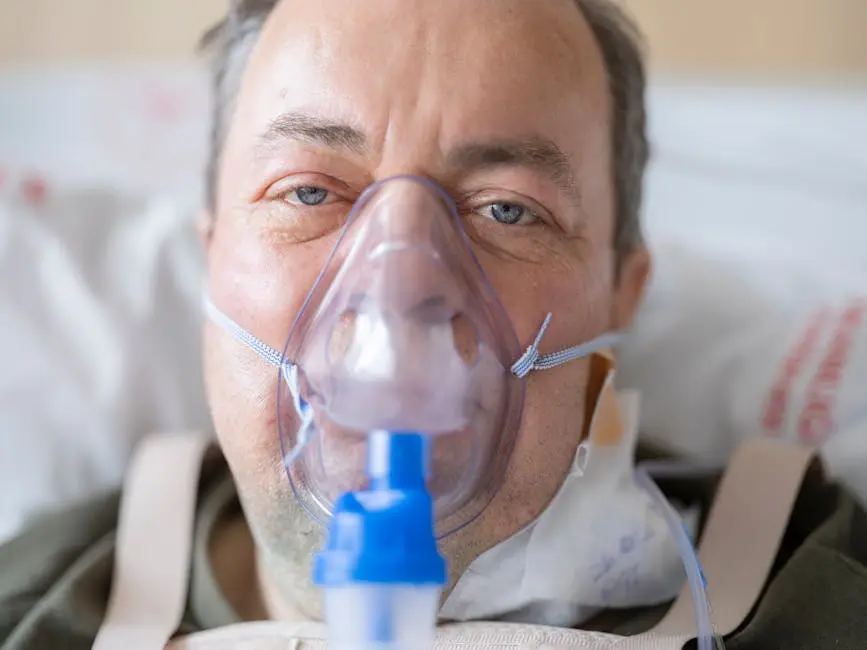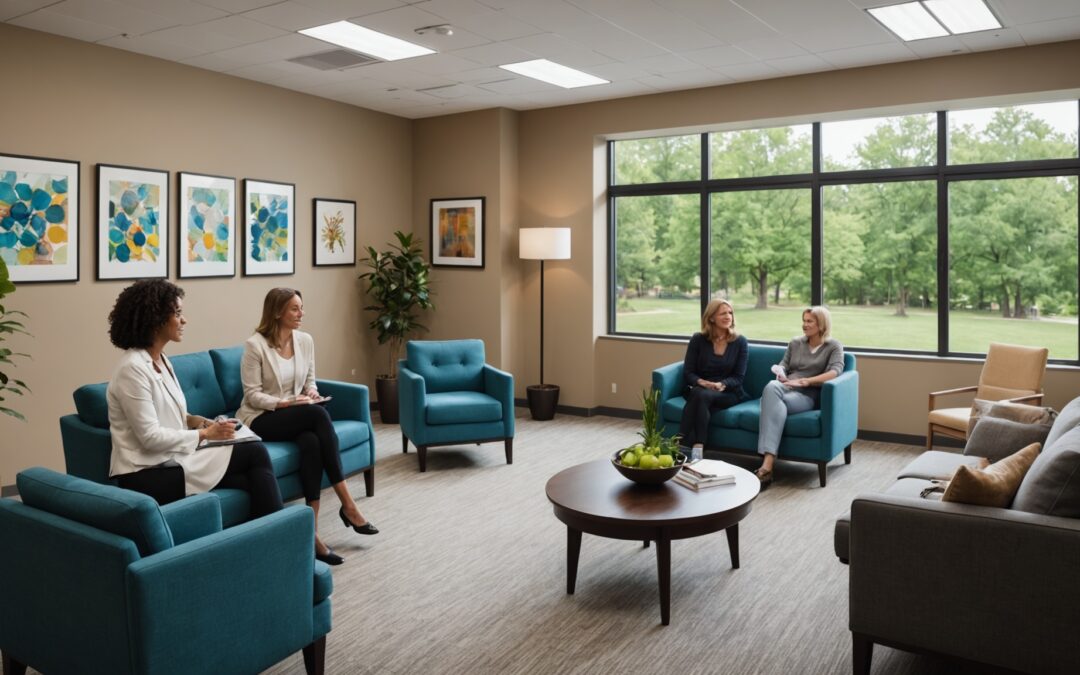In today’s blog, we’ll explore the incredible journeys of individuals who have found hope and healing at a recovery facility. These inspiring success stories highlight the transformative power of support, perseverance, and community in overcoming addiction and mental health challenges.
Table of Contents
John’s Journey: From Darkness to Light
John’s story began with years of substance abuse that led him to rock bottom. However, with the help of the recovery facility, he was able to turn his life around. Through therapy, community support, and a dedicated team of professionals, John found a path to sobriety and renewed purpose.
When John first arrived at the recovery facility, he was unsure of what to expect. He had tried to quit on his own multiple times, but the addiction had a strong hold on him. The welcoming environment at the facility was the first thing that gave him a glimmer of hope. He shared his story with the staff, who assured him that he was not alone, and that many had walked the same path and successfully emerged from the darkness. These words were like a light at the end of a long, dark tunnel for John.
The recovery facility’s comprehensive approach to treatment was pivotal in John’s journey. He participated in individual therapy sessions where he learned to understand the root causes of his addiction. Group therapy provided him with a sense of community and the opportunity to connect with others who were facing similar struggles. These group sessions were where John realized the power of shared experience and mutual support. He began to see that recovery was not just about abstaining from substances, but also about rebuilding relationships and finding new, positive ways to cope with life’s challenges.
Active involvement in various programs offered by the recovery facility also played a crucial role in John’s transformation. He engaged in mindfulness and meditation sessions, which helped him to calm his mind and focus on his journey of healing. John’s favorite activities were the art and music therapy sessions, where he found a creative outlet for his emotions. These sessions allowed him to express himself in ways that words never could. As he immersed himself in these activities, he slowly began to rediscover the joy in life that he had long forgotten.
Sarah’s Story: Overcoming Anxiety and Depression
Sarah struggled with severe anxiety and depression for most of her life, feeling isolated and hopeless. The recovery facility provided her with the tools and support she needed to manage her mental health. Today, she leads a fulfilling life, advocating for mental health awareness and helping others find their way.
Sarah’s battle with anxiety and depression began in her teenage years. For a long time, she felt trapped in a cycle of negative thoughts and overwhelming emotions. She tried to manage on her own, but it wasn’t until she reached out to the recovery facility that she truly began to understand her mental health. The staff greeted her with compassion and empathy, making her feel safe and understood for the first time in years. This initial support was crucial in breaking down the walls she had built around herself.
At the recovery facility, Sarah was introduced to cognitive behavioral therapy (CBT), which became a cornerstone of her treatment. CBT helped her to identify and challenge the negative thought patterns that fueled her anxiety and depression. Through guided sessions with her therapist, Sarah learned practical techniques to manage her symptoms and gradually started to regain control over her life. The sense of empowerment she felt was profoundly liberating.
Another significant aspect of Sarah’s recovery was the facility’s emphasis on building a supportive network. She participated in group therapy sessions, where she met others facing similar challenges. These sessions showed Sarah that she was not alone and that those around her truly understood what she was going through. The peer support she received was invaluable, helping her to build confidence and resilience. She also formed lasting friendships that continue to support her to this day.
In addition to therapy, the recovery facility offered wellness programs that were pivotal in improving Sarah’s overall well-being. Regular physical exercise, yoga classes, and nutrition workshops helped her to take better care of her body, which in turn positively impacted her mental health. Sarah discovered that a holistic approach, focusing on both mind and body, was key to her sustained recovery.
The Role of Community in Recovery
Recovery is not a journey one has to undertake alone. The sense of community and shared experiences within the recovery facility played a crucial role in the success stories of many individuals. This section explores how a supportive environment can be a powerful catalyst for change.
The recovery facility fosters a strong sense of community by encouraging connection and mutual support among its residents. Group activities, shared living spaces, and communal meals create opportunities for individuals to form meaningful relationships. This sense of belonging is essential for many, as it provides a network of support that can be leaned on during difficult times. It is often within these connections that individuals find the strength and motivation to continue their journey of recovery.
Peer support groups are another vital component of the community within the recovery facility. These groups offer a safe space for individuals to share their experiences, challenges, and triumphs. Listening to others’ stories and receiving feedback can be incredibly validating and empowering. It helps to break the isolation that many feel and instills a sense of solidarity. Knowing that others have faced similar struggles and succeeded can be a powerful motivator for those still in the early stages of their recovery.
Moreover, the recovery facility often involves family members in the treatment process, recognizing the important role they play in an individual’s life. Family therapy sessions aim to rebuild trust, improve communication, and address any issues that might be contributing to the individual’s struggles. By involving loved ones, the facility ensures that the support network extends beyond the walls of the facility, providing continuity of care and understanding once the individual returns home.
Innovative Therapies and Programs
The recovery facility offers a variety of innovative therapies and programs designed to address the unique needs of each individual. From holistic approaches to evidence-based treatments, these programs have proven effective in fostering long-term recovery and personal growth.
One of the standout programs at the recovery facility is its emphasis on personalized care. Each individual’s treatment plan is tailored to their specific needs and goals. This approach ensures that no one feels like just another case, but rather, their unique journey is recognized and respected. Personalized care plans are developed through thorough assessments and constant evaluations, allowing for adjustments as the individual’s needs evolve.
The facility also incorporates alternative therapies such as yoga, meditation, and art therapy into its programs. These therapies provide individuals with additional tools to manage stress, anxiety, and other emotions that may arise during recovery. Art therapy, for example, allows individuals to express themselves creatively, often revealing insights and emotions that might not surface during traditional talk therapy. These alternative therapies complement conventional treatments and enhance overall well-being.
Furthermore, the recovery facility is committed to staying at the forefront of treatment advancements. It regularly updates its programs to include the latest evidence-based practices and emerging therapies. This forward-thinking approach ensures that individuals receive the most effective care possible. Innovation is deeply embedded in the facility’s philosophy, always striving to offer the best chance for a successful and lasting recovery.
One particularly innovative program is the use of experiential therapies, such as adventure therapy and equine-assisted therapy. These therapies encourage individuals to engage in activities that challenge them both physically and emotionally. Adventure therapy, for instance, includes activities like hiking, rock climbing, and team-building exercises. These experiences help individuals build resilience, improve self-esteem, and develop valuable life skills that contribute to their recovery.
A Beacon of Hope and Healing
The success stories we’ve shared today are a testament to the resilience of the human spirit and the vital role recovery facilities play in facilitating healing and hope. These journeys remind us that with the right support and determination, it is possible to overcome even the most daunting challenges. We hope these stories inspire and encourage anyone facing similar struggles to seek help and hold on to hope.











